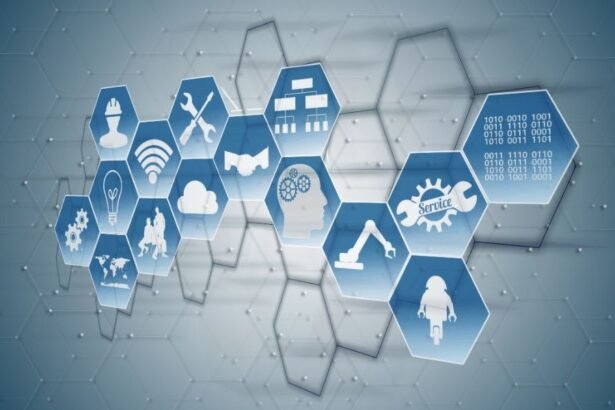The rise of Artificial Intelligence in creative fields has been one of the most hotly debated topics of the decade. From generating realistic images to composing music, AI's capabilities are expanding at an astonishing pace. Now, in 2025, the conversation has moved squarely into the realm of TV show scripts. We're not just talking about AI helping with minor edits; we're talking about AI-generated plots, characters, and even full screenplays. This begs the crucial question: Are AI-written TV shows as good as human-made scripts?
It's a complex question with no simple “yes” or “no” answer. While AI offers incredible tools for efficiency and exploration, the heart of compelling storytelling often lies in uniquely human experiences and emotions. Let's delve into the capabilities of AI in screenwriting versus the irreplaceable elements of human creativity when exploring the area of AI-written TV Shows.
The Promise of AI in Scriptwriting: Efficiency and Innovation
AI tools have come a long way from simply generating grammatically correct sentences. Today's Large Language Models (LLMs) can perform a myriad of tasks that are incredibly appealing to Hollywood studios and content creators.
- Brainstorming & Idea Generation: Feeling writer's block? AI can churn out countless plot ideas, character concepts, and scene scenarios in minutes. This can be a huge boon for writers looking for fresh angles or trying to explore multiple possibilities quickly.
- Outline and Structure: AI-written tv shows can help outline entire seasons, ensuring consistent pacing, plot points, and character arcs. It can analyze successful shows in a particular genre and suggest structural patterns that resonate with audiences.
- Dialogue Assistance: While not perfect, AI-written tv shows can generate dialogue that is contextually relevant and even mimic certain character voices. This can be useful for drafting initial conversations or exploring different ways characters might interact.
- Speed and Scalability: AI can produce drafts at an unprecedented speed. For studios under pressure to churn out content, AI offers the potential to accelerate the writing process, potentially reducing costs and meeting tight deadlines.
- Localization and Accessibility: AI can assist with dubbing, subtitling, and even adapting scripts for different cultural contexts, making shows more accessible to a global audience. This goes beyond simple translation, factoring in cultural nuances.
- Character Consistency: For long-running series, AI can help track character traits, backstories, and emotional states to ensure continuity and avoid inconsistencies that might frustrate dedicated fans.
- Data-Driven Insights: AI can analyze vast datasets of successful shows to identify trends, popular tropes, and audience preferences, potentially guiding writers toward concepts with high commercial appeal.
The Irreplaceable Human Touch: Where AI Falls Short
Despite these impressive capabilities, there are fundamental aspects of creative writing that AI, at least in 2025, struggles to replicate.
- Emotional Depth and Nuance: True human emotion, the kind that moves an audience to tears or laughter, stems from lived experience, empathy, and a deep understanding of the human condition. AI can mimic emotion based on patterns in its training data, but it cannot genuinely feel or understand complex emotional subtext, irony, or unspoken tension in the way a human writer can.
- Originality and True Innovation: While AI can generate novel combinations of existing ideas, its creativity is fundamentally derivative. It learns from existing data. It struggles to conceptualize truly groundbreaking, never-before-seen concepts that defy current trends or societal norms – the kind of creative leaps that define truly iconic television. The “spark” of genius often comes from unpredictable human insight.
- Subtlety and Subtext: Great writing thrives on what isn't said, the layers of meaning beneath the surface. AI can struggle with this level of nuance, often producing dialogue or plot points that are too literal or explanatory.
- Authentic Voice and Perspective: Every human writer brings a unique voice, perspective, and worldview shaped by their individual experiences. This imbues scripts with authenticity and a distinct point of view. AI, by its nature, averages out voices, making it difficult to achieve a truly singular, compelling authorial voice.
- Cultural Sensitivity and Ethical Judgment: While AI can be programmed with ethical guidelines, it lacks genuine moral reasoning or cultural understanding. It can inadvertently generate content that is biased, offensive, or insensitive if its training data contains such biases, or if it misunderstands the complex implications of certain tropes. Human oversight is crucial here.
- The “Happy Accident” and Serendipity: Sometimes, the best creative ideas emerge from unexpected connections, a sudden flash of insight, or even mistakes. AI's process is more deterministic, following algorithms. It lacks the capacity for serendipitous discovery that often defines human creativity.
- The Intent to Communicate: Human writers have an inherent desire to communicate, to share a piece of themselves, to connect with an audience on a deeper level. AI lacks this fundamental intent; it simply processes and generates.
- Read More about how AI lacks human touch when it comes to writing.
The Future of AI-Written TV Shows: Human-AI Collaboration is Key
In 2025, the most realistic and promising future for screenwriting isn't AI replacing human writers, but rather human-AI collaboration.
- AI as an Assistant, Not a Master: AI can be an incredibly powerful tool for writers – a brainstorming partner, a research assistant, a tireless editor, and even a sounding board for different plot directions. It can handle the more tedious or repetitive aspects of scriptwriting, freeing up human writers to focus on the truly creative, emotional, and nuanced storytelling.
- “Walled Gardens” and Ethical Training Data: As concerns about copyright and intellectual property persist (a major point of contention in the recent WGA strikes), studios may invest in proprietary LLMs trained on licensed, ethical datasets to mitigate legal risks and ensure responsible AI use.
- New Roles for Writers: The role of the screenwriter might evolve. Instead of just writing, they might become “AI wranglers” or “narrative architects,” guiding AI, curating its outputs, and imbuing the final product with that essential human spark.
- Hybrid Content: We may see more “hybrid” shows, where certain elements (e.g., background dialogue, minor character arcs, or even specific scenes) are AI-generated, while the core narrative, main characters, and emotional beats remain firmly in human hands.
Conclusion: The Unbeatable Human Heart of Storytelling
While AI-written TV shows are an undeniable reality in 2025, pushing the boundaries of efficiency and content generation, they are not, at their core, “as good as human-made scripts” when it comes to true depth, originality, and emotional resonance.
The magic of television lies in its ability to tap into universal human experiences, to explore complex emotions, and to reflect our world back to us in compelling, sometimes challenging, ways. This requires a level of empathy, intuition, and lived experience that AI simply cannot replicate.
So, while AI will undoubtedly continue to be a powerful tool that transforms the entertainment industry – from pre-production to post-production and localization – the ultimate storytellers, the ones who truly connect with our hearts and minds, will remain human. The future of TV will be a fascinating collaboration, but the emotional core, the unique voice, and the unforgettable narratives will continue to be born from the infinite well of human creativity.










